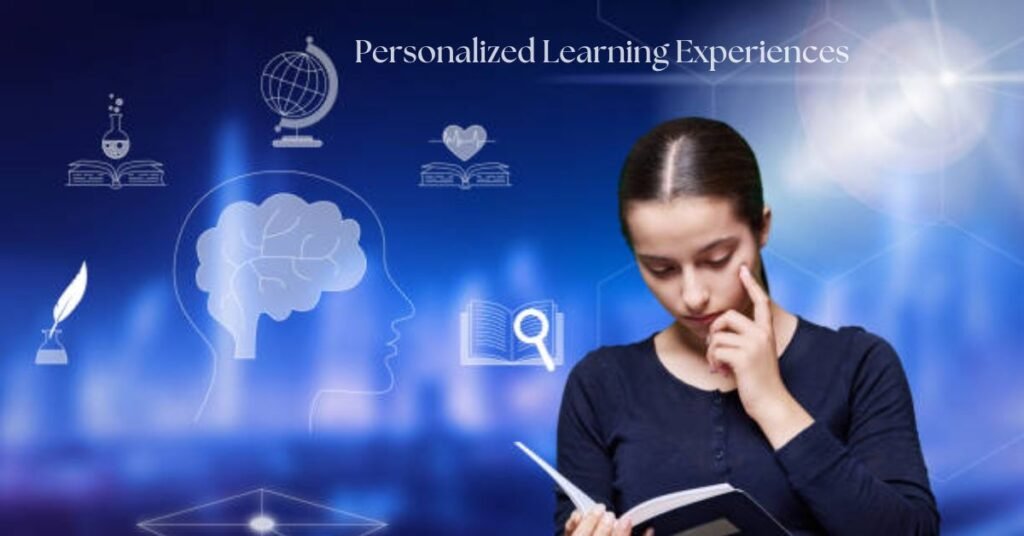Homework AI Review: How AI Solvers Enhance Student Learning
Homework AI review highlights the transformative role that artificial intelligence plays in enhancing student learning experiences. By leveraging advanced algorithms and machine learning capabilities, AI solvers offer personalized support tailored to individual learning styles. This technology assists students in grasping complex concepts by providing instant feedback and explanations, thereby fostering a deeper understanding of the subject matter. The integration of AI in education not only streamlines the learning process but also empowers students to take control of their academic journey, making learning more interactive and engaging.
In the realm of education, the impact of AI extends beyond mere assistance with homework. It serves as a powerful resource for students seeking to improve their academic performance and develop critical thinking skills. As students interact with AI-driven platforms, they cultivate problem-solving abilities and enhance their knowledge retention. The evolution of learning tools, as discussed in various analyses, signifies a major shift towards a more technology-driven educational landscape. This new paradigm, reflected in discussions on platforms like Fintechzoom, emphasizes the importance of adapting traditional teaching methods to incorporate innovative technologies that resonate with the digital age.
Transforming Education with AI Technologies
In the ever-evolving landscape of education, the integration of artificial intelligence (AI) technologies is revolutionizing how students learn and enhance their academic skills. This article delves into the significant role of AI solvers in education, emphasizing how they contribute to personalized learning, critical thinking enhancement, and the future of learning environments. By exploring these facets, we aim to provide insight into the transformative potential of AI in the educational sector, particularly through platforms like Fentichzoom that are committed to advancing learning methodologies.
Understanding AI in Education
AI in education encapsulates a broad range of technologies designed to enhance teaching and learning processes. By harnessing machine learning algorithms, AI systems can analyze student data to provide tailored educational experiences. This technology not only identifies the learning pace of individual students but also recognizes their strengths and weaknesses, enabling educators to adapt their teaching methods effectively. Such adaptability is crucial in today’s diverse classroom environments, where students come from various backgrounds and have differing levels of prior knowledge. Additionally, AI facilitates the automation of administrative tasks, allowing educators to concentrate more on teaching rather than paperwork.
Benefits of AI Solvers for Students
AI solvers are becoming increasingly popular among students for their ability to enhance learning experiences in multiple ways. These tools provide instant access to educational resources and solutions that can significantly improve academic performance. By offering tailored assistance, AI solvers help students grasp complex concepts more readily, which can lead to better engagement and motivation in their studies.
Personalized Learning Experiences
One of the primary advantages of AI solvers is their capacity to deliver personalized learning experiences. By analyzing a student’s past performance and learning preferences, AI can curate a curriculum that aligns with their individual needs. This tailored approach not only helps students master difficult subjects but also fosters a deeper interest in learning. With AI, students can progress at their own pace, ensuring that they fully understand each topic before moving on to the next, ultimately enhancing their overall educational journey.

Instant Feedback Mechanisms
Another significant benefit of AI solvers is the provision of instant feedback mechanisms. Students can receive immediate responses to their queries or assignments, allowing them to understand mistakes and correct them in real-time. This rapid feedback loop is crucial in reinforcing learning, as it helps students to identify areas for improvement while the material is still fresh in their minds. Furthermore, the ability to ask questions and receive answers instantly encourages students to remain engaged and curious about their learning process.
Enhancing Critical Thinking Skills
AI solvers play a vital role in enhancing critical thinking skills among students. By presenting challenges that require analytical thinking and problem-solving abilities, these tools encourage learners to think beyond rote memorization and engage with content on a deeper level. This approach not only aids in knowledge retention but also prepares students for real-world situations where critical thinking is essential.
Problem-Solving Abilities Development
Through the use of AI solvers, students can develop robust problem-solving abilities. These tools often present scenarios that require logical reasoning and creative thinking, compelling students to analyze problems from various angles. Engaging with these challenges helps cultivate a mindset of inquiry and exploration, which is invaluable in both academic and life pursuits. As learners navigate through complex problems, they build resilience and adaptability—key traits for success in any field.
Knowledge Retention Improvement
AI-enhanced learning strategies are designed to improve knowledge retention significantly. By employing techniques such as spaced repetition and active recall, AI solvers ensure that information is not merely memorized but deeply understood. This method helps solidify concepts in students’ minds, making it easier for them to apply knowledge in different contexts. As a result, students are better equipped to tackle advanced topics and exams, leading to improved academic outcomes.
Integration of AI in Traditional Teaching
The integration of AI technologies into traditional teaching methods is becoming increasingly prevalent. Educators are recognizing the value of combining AI tools with conventional pedagogical approaches to create a more dynamic and interactive learning environment. This hybrid model allows teachers to leverage the strengths of AI while maintaining the personal touch that is crucial in education. By utilizing AI for administrative tasks and data analysis, educators can focus more on student interactions, fostering a supportive learning atmosphere that encourages curiosity and engagement.
The Future of AI in Learning Environments
As we look to the future, the role of AI in learning environments is poised to expand significantly. With advancements in technology, we are likely to see more sophisticated AI applications that can further enhance the educational experience. These innovations will not only streamline learning processes but also provide educators with deeper insights into student performance and engagement. The evolution of AI in education holds the promise of creating more inclusive and effective learning environments that cater to the diverse needs of students.
Trends in Educational Technology
Current trends in educational technology are heavily influenced by the rise of AI. From virtual classrooms to gamified learning experiences, technology is reshaping how education is delivered and experienced. These trends indicate a shift towards more interactive and personalized learning, where students can engage with content in ways that are most effective for them. As platforms like Fintechzoom continue to innovate, we can expect to see further developments that enhance the overall educational landscape.

Adapting to Digital Learning Needs
In a world increasingly reliant on digital solutions, the ability to adapt to digital learning needs is crucial. AI technologies are at the forefront of this adaptation, offering tools that cater to various learning styles and preferences. By providing resources that are accessible and engaging, AI can help bridge the gap for students who may struggle in traditional educational settings. This adaptability will be essential as we move towards a more digital-centric approach to education, ensuring that all students have the opportunity to succeed.
Case Studies of Successful Implementations
To illustrate the impact of AI in education, numerous case studies highlight successful implementations of AI solvers in various learning environments. These examples showcase how schools and educational institutions have integrated AI technologies to enhance student learning outcomes. By analyzing these case studies, we can gain insights into best practices and effective strategies for leveraging AI in educational settings.
Challenges and Considerations in AI Usage
While the benefits of AI in education are substantial, there are also challenges and considerations that must be addressed. Issues such as data privacy, the digital divide, and the need for teacher training in AI technologies are critical factors that educators and institutions must navigate. By acknowledging these challenges, stakeholders can work towards creating a balanced approach that maximizes the advantages of AI while minimizing potential drawbacks.
Frequently Asked Questions
This section addresses common inquiries regarding the use of AI in education, particularly how AI solvers enhance student learning. It provides insights into the benefits, functionalities, and implications of integrating artificial intelligence within academic settings, helping students and educators understand its transformative impact.
What is an AI solver?
An AI solver is a digital tool that utilizes artificial intelligence to assist students with their academic tasks. By analyzing problems, it provides tailored feedback and solutions, helping students grasp complex concepts quickly and efficiently. This technology promotes personalized learning experiences, enhancing overall understanding of the subject matter.
How does AI improve student learning?
AI enhances student learning by offering personalized educational experiences tailored to individual needs. It identifies learning patterns and adapts content accordingly, ensuring that students receive relevant support. This individualized approach fosters deeper comprehension and encourages active engagement in the learning process, ultimately boosting academic performance.
Can AI help with critical thinking skills?
Yes, AI can significantly aid in developing critical thinking skills by presenting students with problem-solving scenarios and encouraging analysis. As students interact with AI tools, they learn to evaluate information, make decisions, and explore various solutions, thus honing their analytical abilities and enhancing their overall cognitive skills.
Is AI integration in education beneficial?
Integrating AI in education is highly beneficial as it streamlines learning processes and makes them more interactive. Students can receive instant feedback and assistance, enabling them to engage with material more effectively. This innovative approach helps educators adapt teaching methods, fostering a more dynamic and technology-driven educational environment.
What role does Fintechzoom play in education technology?
Fintechzoom analyzes and discusses the impact of technology in education, particularly how innovations like AI are reshaping learning. By providing insights and research, it emphasizes the importance of adapting traditional teaching methods to include new technologies, ensuring that education remains relevant and effective in a rapidly evolving digital landscape.







